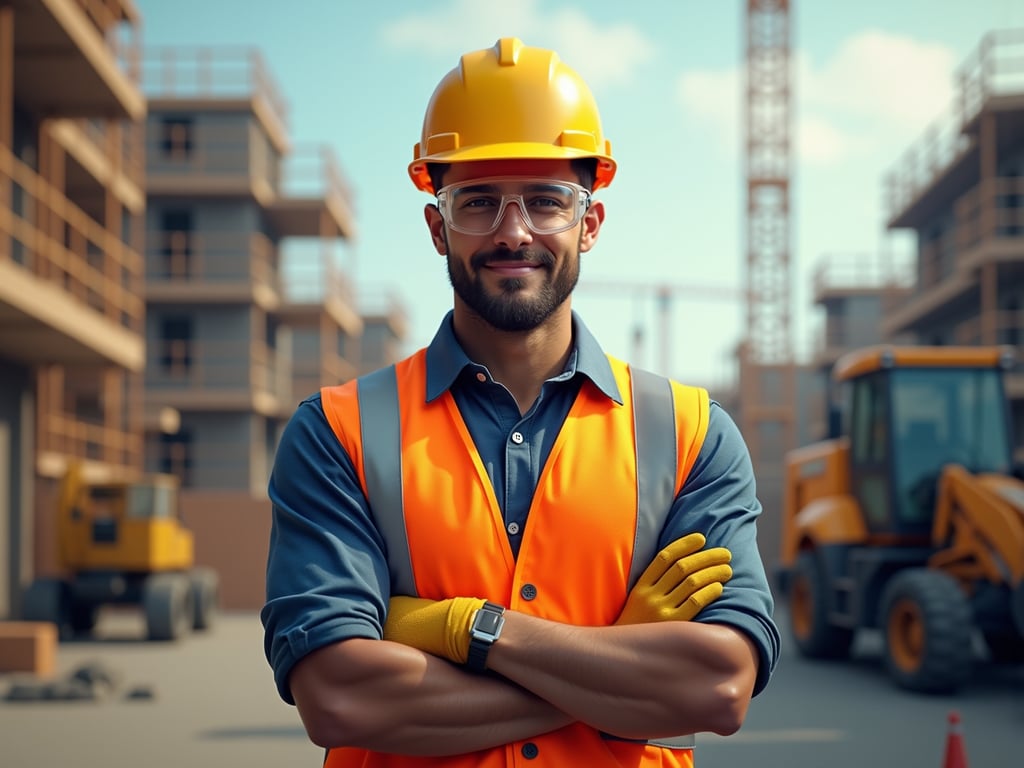Essential Safety Equipment for Construction Workers: What You Need to Know
Discover must-have safety equipment for construction workers, including PPE, helmets, gloves, and protective gear to ensure a safe work environment.
GENERAL & INFORMATIVE ARTICLES
Introduction
Construction sites are inherently hazardous environments, requiring strict safety measures to protect workers from potential injuries. Wearing the right personal protective equipment (PPE) is crucial for ensuring safety and compliance with industry regulations. In this guide, we will explore the essential safety equipment every construction worker should use to minimize risks and maintain workplace safety.
Head Protection: Helmets and Hard Hats
One of the most vital pieces of safety gear on a construction site is a helmet or hard hat. These protect workers from falling objects, debris, and potential head injuries. Key features to look for include:
Impact resistance
Adjustable suspension for a secure fit
Compliance with OSHA and ANSI standards
Eye and Face Protection: Safety Glasses and Face Shields
Dust, flying particles, and hazardous chemicals pose serious risks to the eyes and face. Safety glasses and face shields are essential for preventing injuries. Options include:
Anti-fog and scratch-resistant lenses
Full-face shields for welding and grinding tasks
UV protection for outdoor work
Hand Protection: Work Gloves
Hands are constantly exposed to risks such as cuts, burns, and chemical exposure. Choosing the right gloves based on the job type is essential:
Cut-resistant gloves for handling sharp materials
Heat-resistant gloves for welding applications
Chemical-resistant gloves for hazardous material handling
Respiratory Protection: Masks and Respirators
Construction sites often have airborne hazards like dust, fumes, and toxic gases. Proper respiratory protection is necessary to prevent long-term health issues:
N95 masks for dust and airborne particles
Half-face or full-face respirators for chemical exposure
Powered air-purifying respirators (PAPRs) for high-risk environments
Hearing Protection: Earplugs and Earmuffs
Exposure to loud noise from heavy machinery can lead to hearing loss over time. Proper hearing protection options include:
Foam earplugs for disposable, lightweight protection
Noise-canceling earmuffs for high-decibel environments
Custom-molded earplugs for personalized fit and comfort
Fall Protection: Safety Harnesses and Lanyards
Falls are among the leading causes of injuries on construction sites. Workers operating at heights need fall protection gear such as:
Full-body safety harnesses with adjustable straps
Lanyards with shock absorbers for controlled descent
Anchor points and lifelines for added stability
Foot Protection: Safety Boots
Heavy equipment, sharp objects, and slippery surfaces make foot protection crucial. Safety boots should provide:
Steel or composite toe caps for impact resistance
Slip-resistant soles for better traction
Waterproof and insulated designs for different weather conditions
High-Visibility Clothing: Reflective Vests and Jackets
Construction sites often have moving vehicles and equipment, making visibility a key safety factor. Workers should wear:
High-visibility vests with reflective stripes
Weatherproof jackets with fluorescent colors
ANSI-rated apparel for maximum visibility
Conclusion
Equipping construction workers with the right safety gear significantly reduces workplace accidents and injuries. Employers must ensure compliance with safety standards and provide necessary training on the use of PPE. Investing in high-quality safety equipment is not just a regulatory requirement but a fundamental step toward creating a safer work environment.
For top-quality construction safety equipment, explore our latest collection today!


